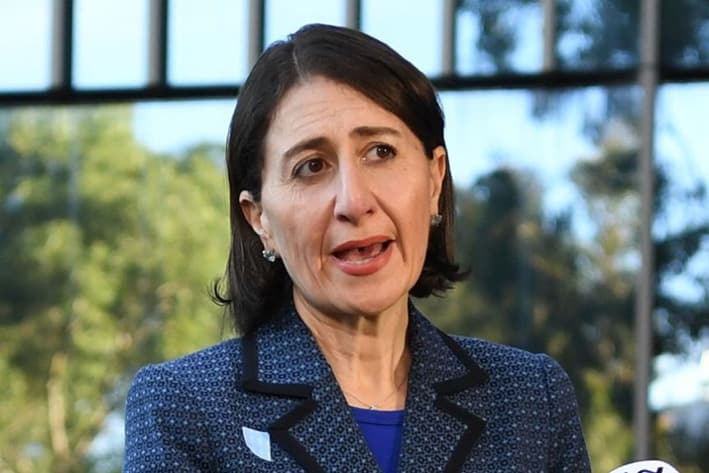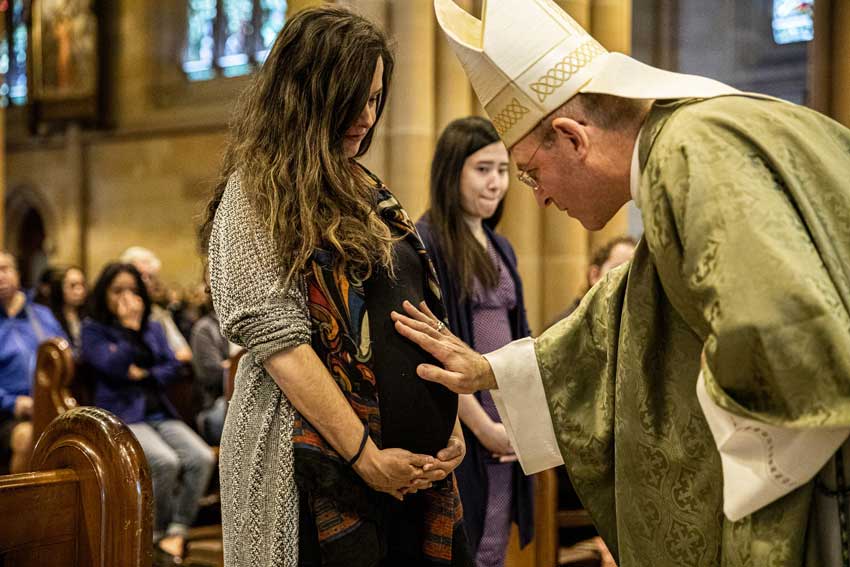
Reform needs to recognise crime against a child in utero
Faith leaders and pro-life advocates say a proposed law to address serious harm or the death of an unborn child due to a crime in New South Wales falls short of fully recognising the loss of a human life.
The reform of the NSW Crimes Act would add three years to the maximum penalty for a crime committed against a pregnant woman that results in the death of an unborn child.
It will allow for the child to be named in the formal charges.
It also provides an opportunity for family members to provide victim impact statements and be entitled to funeral expenses for the child, but fails to recognise such a child as a separate person entitled to justice under criminal law.
The draft bill replaces earlier iterations of so-called ‘Zoe’s Law’ named in honour of the unborn child of Central Coast woman Brodie Donegan, who died in the eight month of pregnancy on Christmas Day in 2009 when Ms Donegan was struck by a driver under the influence of drugs.
“[It] fails to achieve the principle objective of many of those who have campaigned for this law for more than a decade, and may be regarded by them and their supporters as mere tokenism” -Archbishop Anthony Fisher OP and Archbishop Makarios
The driver was charged with dangerous driving causing grievous bodily harm to Ms Donegan, but she faced no charge in relation to Zoe’s death.
In a joint submission to the NSW Department of Communities and Justice, Sydney Archbishop Anthony Fisher OP and Primate of the Greek Orthodox Archdiocese of Australia Archbishop Makarios said the Bill “still does not recognise the unborn child as a separate life worthy of standalone acknowledgment under the law”.
“[It] fails to achieve the principle objective of many of those who have campaigned for this law for more than a decade, and may be regarded by them and their supporters as mere tokenism,” the archbishops wrote.

“The Bill, if passed, will not relieve the Government of ongoing demands for the just recognition in law of the loss of an unborn child whose mother is the victim of criminal conduct – especially when the death of the child was the perpetrator’s primary intent.
“As we understand it, the campaign for law reform in the area of ‘child destruction’ laws was to recognise that the death of an unborn child is not merely an injury to the mother of that child, but rather the loss of a human life; one whose presence is missed and mourned by those left behind,” they said.
“Disappointing” and a “symbolic gesture”
The Maronite Eparch of Australia Bishop Antoine-Charbel Tarabay OLM, said the Bill is “disappointing” as it fails to do what it claims, which is to “specifically recognise” the life of an unborn child in the proposed amendments.
“Rather than create a separate offence for child destruction, as has been the request of grieving parents and others who have campaigned for a change to this law for many years, the Bill retains the current characterisation as the death of an unborn child as an offence against the mother,” Bishop Tarabay said.
“It appears that in the Bill, the protection of abortion has been prioritised over the recognition of the life of the child,” he added.
“It would not be just for the Parliament to pass the Bill into law and claim that it has achieved the passing of Zoe’s Law, when in reality, it does nothing more than make a symbolic gesture that is empty of appropriate recognition for the loss of a child due to the criminal activity of another.”
Life Choice director Rebecca Gosper said that the draft Crimes Legislation (Offences Against Pregnant Women) Bill 2020 was not in line with the original intent of ‘Zoe’s Law’.
“[It] still does not recognise the death of an unborn child as a result of criminal activity,” Ms Gosper said. “The draft bill before us is not Zoe’s Law, and claiming otherwise is an insult to the memory of baby Zoe, the other babies like her and those who have fought for decades for change. The death of a child cannot be seen as merely an injury against the mother.”
Health law expert Anna Walsh said that no rational person would suggest that the death of an unborn child through a third party assault is anything but a tragedy. “Currently though, the unborn child who dies at the hand of a third party is left without proper justice whilst the one that survives the assault and dies a minute later is afforded due respect as the victim of a crime,” Ms Walsh said.
“Whilst there are many technical issues to discuss over how bestowing legal personhood on the unborn child should operate in our criminal law, the bill shuts the door on this discussion.”
“Currently…the unborn child who dies at the hand of a third party is left without proper justice” – Anna Walsh
Archbishops Fisher and Makarios said providing fuller recognition of a child injured or killed as the result of a crime “or even the minimal recognition in the present Bill” will require the Government to “resist the powerful abortion lobby that sees any recognition of the existence of the unborn child as a threat to the unfettered availability of abortion up to birth”.
Anglican Archbishop of Sydney Glenn Davies said that the outpouring of grief over the death of Matthew Field and his pregnant partner, Katherine Leadbetter, after they were hit by a stolen vehicle in Brisbane last month, showed that there was important and urgent need for law reform.
“Police have brought murder charges and are considering further charges over the death of the unborn child,” the archbishop said, while “community concern has been evident about the deaths of all three persons”.
“Our current laws do not reflect the community concern on these matters.” He supported the Bill as recognising that a pregnant woman who is nurturing another life “suffers additionally when that vulnerable fledgling life is taken away”.
Related:
